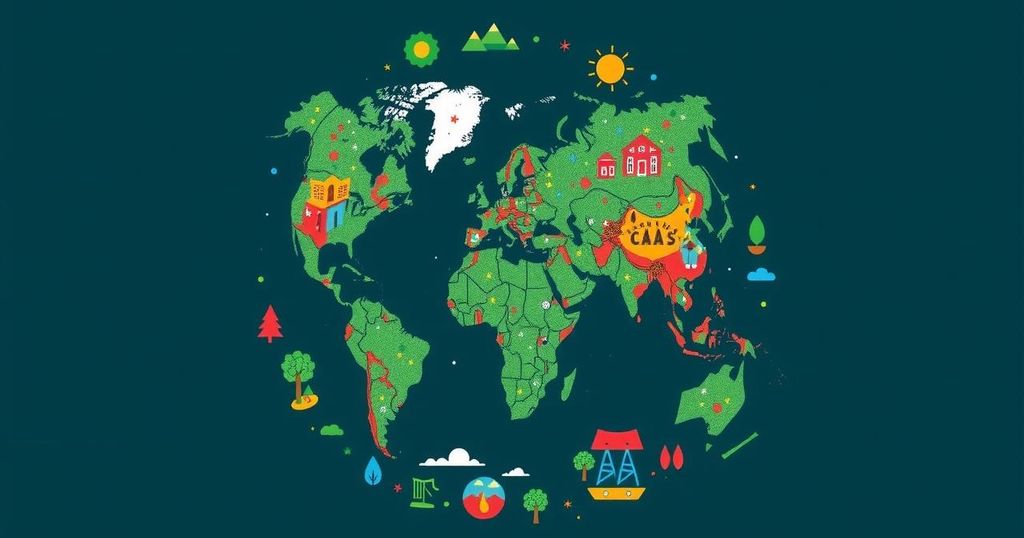World Bank President Affirms Climate Goals Secure Regardless of U.S. Election Results

World Bank President Ajay Banga expressed confidence that the institution’s climate goals, which aim to increase climate financing from 35% to 45% by 2025, will remain intact regardless of the U.S. presidential election outcome. He emphasized the importance of smart development practices aimed at climate resilience and suggested that both the U.S. and global economies would benefit from increased renewable energy access in developing regions.
The President of the World Bank, Ajay Banga, recently asserted that the institution’s climate goals, exemplifying “development done smart,” are unlikely to be compromised irrespective of the outcomes of the imminent United States presidential election. In a recent interview with Agence France-Presse, Banga highlighted the bank’s ambition to escalate its climate financing from thirty-five percent to forty-five percent of its total lending portfolio by June 30, 2025. The allocation of these funds will be divided between initiatives for climate change adaptation and mitigation. Banga stated that the World Bank nearly achieved this forty-five percent target last year and is expected to surpass it in the upcoming fiscal year. He emphasized that the specifics within this allocation are crucial, particularly regarding strategies such as creating climate-resilient infrastructure. While former President Donald Trump, currently campaigning against Democrat Kamala Harris, has downplayed the severity of climate change and indicated a willingness to withdraw from the Paris climate agreement if elected, Banga expressed skepticism about any potential administration rolling back the World Bank’s climate objectives. He remarked, “I do not see any administration saying you should not paint a school roof white to reduce the temperature inside, or you should not build a hospital or a school that can withstand a heavy climate event.” Moreover, Banga argued that increased access to renewable energy infrastructure is ultimately advantageous for the United States. He stated that if Africa successfully connects three hundred million people to electricity, it would create significant economic opportunities, benefitting countries such as those in Europe and America. “We are kind of in this together, and most administrations will see it that way,” he concluded during the interview ahead of the upcoming annual meetings of the International Monetary Fund and World Bank in Washington.
The World Bank, an international financial institution, aims to reduce poverty and support sustainable development globally. Recently, the institution has intensified its focus on climate change, committing to allocate a larger percentage of its lending to climate-related initiatives. This shift reflects a growing recognition of the urgent need for both adaptation and mitigation strategies in the face of climate risks. The upcoming U.S. presidential election raises questions about the continuity of these climate initiatives, particularly with candidates exhibiting mixed stances on climate change.
In summary, World Bank President Ajay Banga remains confident that the bank’s climate financing goals will persist despite potential changes in U.S. leadership. The World Bank’s commitment to increasing climate-focused funding underscores the institution’s belief in sustainable development as a central tenet of its mission. Banga’s insights suggest that the interconnectedness of global economies will necessitate collaborative efforts towards renewable energy and infrastructure resilience, irrespective of political shifts.
Original Source: www.barrons.com






